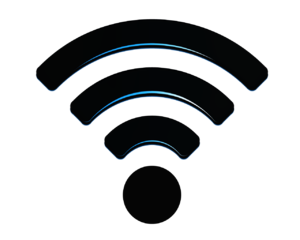
- Image via Wikipedia
FOR a long time, I relied on my Brooklyn neighbors’ generosity — that is, their unsecured wireless networks — every time I connected to the Web.
So, to linksys of Park Slope, in 2005, for allowing me to do my first freelance work from home; to Netgear 1 and Netgear 2 of the same neighborhood, in 2006, for supporting my electronic application to several graduate schools; to DHoffma, from 2007 to 2008, for letting me pay my taxes online and stream new episodes of “Friday Night Lights” each evening for a whole winter; to belkin54g, Cooley and, above all, to the blessed Belkin_G-Plus_MIMO of Ditmas Park, from 2009 to 2010, for the ability to speedily reply to student e-mails, video-chat with my sister, keep abreast of the latest literary hoo-ha, “like” as many of my friends’ Facebook posts as I liked and learn all about lentil-sprouting or Prometheus whenever the mood struck: Thank you. And may you rest in peace.
A few months ago, the Belkin_G-Plus_MIMO network changed its name and gained a padlock icon in my computer’s list of available connections. Then — crickets. The era of unintentional, unasked-for or simply unacknowledged Internet sharing, it seemed, had come to an end.
Suddenly disconnected, I realized how lucky I’d been all those years, having that tremendous body of information and awesome communication technology at my fingertips, all basically free. It may have been unfair, but I don’t believe I was stealing: the owners’ leaving their networks password-free was essentially a gift, an ethereal gesture of kindness. Sometimes I’d imagine my anonymous benefactors, those people behind Netgear 1 or belkin54g, thinking, “Well, I have Internet to spare.”
And, really, who doesn’t? Home wireless networks can usually support five or more computers, yet there are only about 1.4 computers per American household.
For a few blindered weeks, I debated whether or not to finally “buy” the Internet. The whole system, though, seemed wasteful: paying a company to come wire my apartment, then paying a monthly fee so that I could maintain my own private territory within the cloud of 20 or so wireless networks that were already humming around my apartment. It would be all the more wasteful given the likelihood that, just as cellphones made landlines optional, smartphones and tablets will soon replace the need for home networks at all.
Why couldn’t I instead shell out a nominal fee — to someone, anyone — to partake of the riches that were all around me in abundance?








